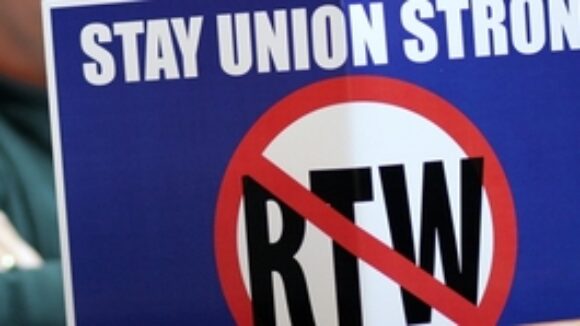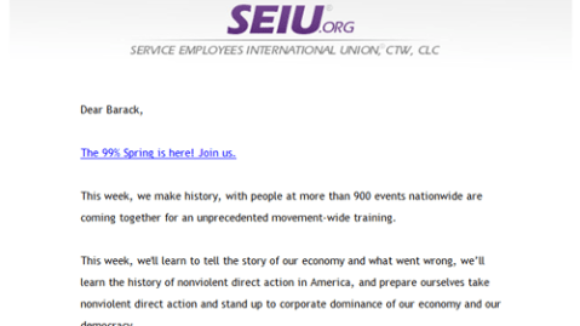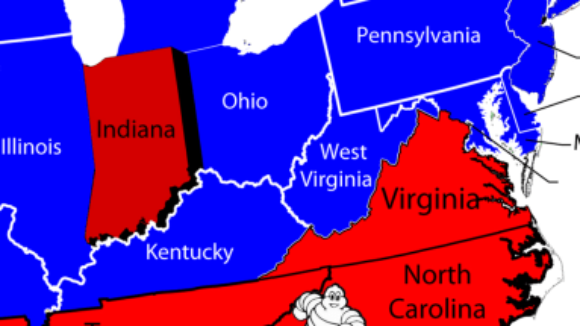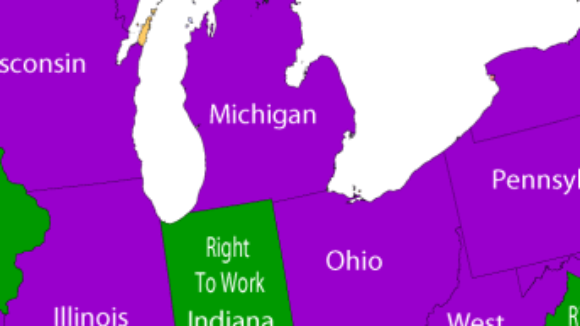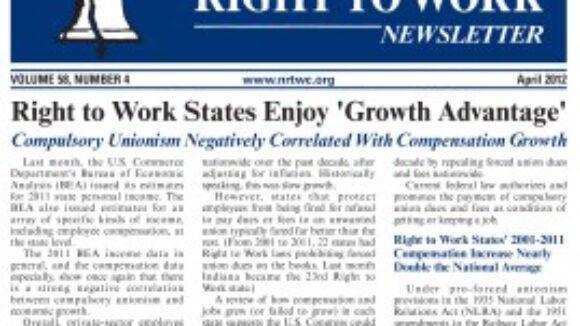Fact: Union Members Benefit from Right To Work Laws
The continues Investors Business Daily its excellent job of defining and promoting Right to Work: Should workers be forced to join unions or pay them dues as a condition of employment? Indiana recently became the 23rd state to say "no," and polls show support for similar right-to-work laws in union bastions like Minnesota, Michigan and Ohio. In Michigan, unions are so fearful that they are pushing to amend the state constitution to prevent such a law. The presumption is that if such laws passed, many employees would drop out of unions or stop paying dues, weakening labor. There's just one thing: There is little evidence that right-to-work laws cause people to leave unions. In fact, what evidence there is suggests the vast majority stick with their unions. That may be in part because the laws force unions to be more attentive to members' needs. "Somebody asked me how many workers got out because of right-to-work and I said, well, we don't track that number," said Jimmy Curry, president of Oklahoma AFL-CIO, whose state adopted a right-to-work law in 2001. He claims that no more than 10% of his members even register complaints.
